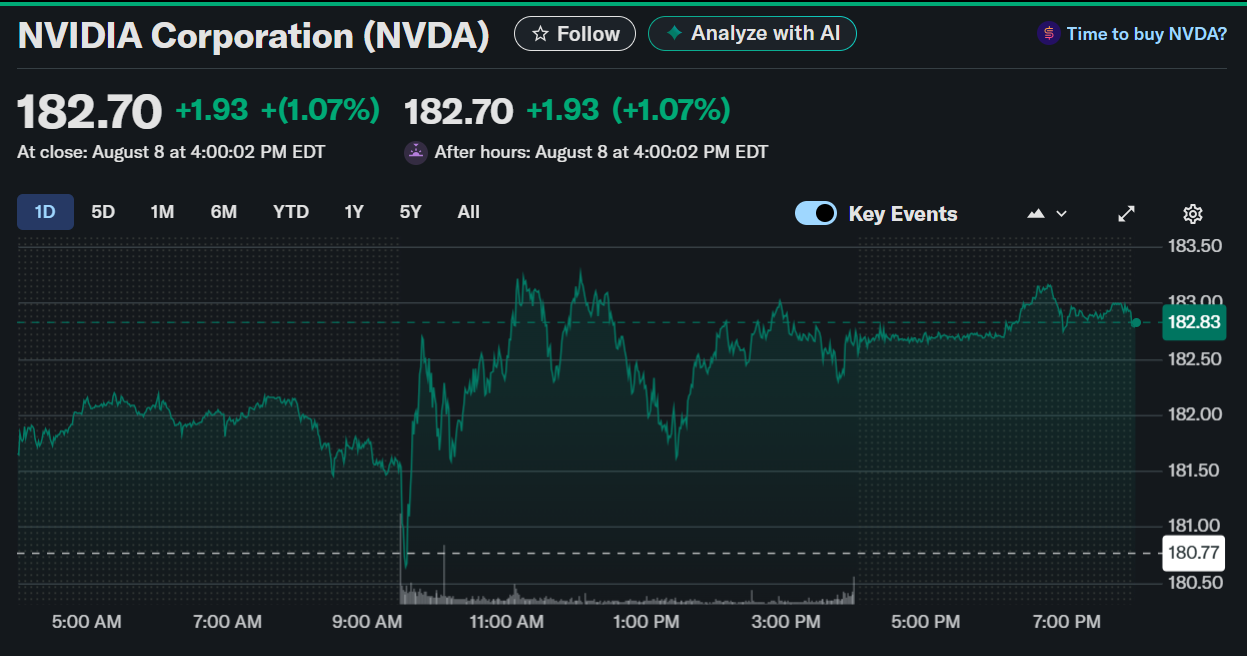NVIDIA’s $NVDA Soars as U.S. Greenlights H20 Chip Exports to China Post-CEO White House Charm Offensive
Washington folds—again. After NVIDIA's CEO worked the Oval Office like a Vegas high-roller, the Biden administration caved on H20 chip export licenses to China. Tech diplomacy? More like margin-call politics.
Silicon Shuffle
The chips are down—literally. With this move, NVIDIA bypasses Washington's own tech blockade, proving corporate lobbying still trumps national security theater. Wall Street's already pricing in the upside: expect another earnings call where 'geopolitical risk' gets mentioned 12 times while revenue guidance gets revised upward.
Semiconductor Realpolitik
No numbers disclosed (classic), but insiders whisper the H20—a deliberately downgraded export variant—will still outperform China's domestic alternatives. Because nothing says 'free market' like government-approved handicaps.
Closing Thought: Another win for the 'too big to sanction' club. Meanwhile, retail investors are left deciphering whether this is a supply-chain play or just another excuse for algos to run the stock to fresh ATHs before the next Fed meeting.
TLDR
- Nvidia ($NVDA) closed at $182.70, up 1.07% on August 8, after news of U.S. export license approvals.
- U.S. Commerce Department began issuing licenses for H20 chip sales to China.
- CEO Jensen Huang personally lobbied President Trump to reverse the April ban.
- Company had warned of an $8B revenue hit from restrictions in the July quarter.
- China remains a key market, representing 12.5% of Nvidia’s Q1 revenue.
Nvidia Corporation (NASDAQ: NVDA) ended Friday’s session at $182.70, up 1.93 points (+1.07%), after a U.S. official confirmed the Commerce Department has begun granting licenses for the company to export its H20 chips to China. This follows weeks of delay after an April ban on the product, which was specifically designed to comply with U.S. AI chip export controls.

NVIDIA Corporation (NVDA)
The reversal came shortly after CEO Jensen Huang met President Donald TRUMP at the White House, marking his second Oval Office meeting in recent weeks. Sources told Reuters and the Financial Times that the Bureau of Industry and Security began issuing the licenses just two days after the latest meeting.
Background to the Export Ban
In April, the Trump administration blocked H20 sales to China, escalating AI chip export restrictions introduced under President Biden. The MOVE surprised Nvidia, which had informed Chinese customers they could expect continued deliveries.
The company had forecast an $8 billion revenue loss in the July quarter from the curbs and took a $4.5 billion direct hit plus an additional $2.5 billion in missed sales. Huang has warned that cutting U.S. tech exports accelerates Chinese innovation, giving competitors like Huawei an advantage.
Market Impact and Strategic Concerns
While Nvidia has regained partial access to the Chinese market, exports of its other advanced AI chips remain restricted. The H20 accounted for $4.6 billion in Q1 sales, with China contributing 12.5% of total revenue during that period.
Security officials remain divided. Some argue that allowing the exports undermines U.S. military and economic competitiveness in AI. A group of 20 national security experts recently urged Commerce Secretary Howard Lutnick to maintain the ban, calling reversal a “strategic mis-step.” Nvidia dismissed the concerns as “misguided.”
Competitive Landscape
Huang has noted that Nvidia’s share of China’s AI chip market has fallen from 95% to 50% over the past four years as domestic rivals gained ground. He has cautioned that further restrictions could erode Nvidia’s global leadership position, especially as China pushes to develop its own AI hardware ecosystem.
Earnings and Outlook
Nvidia is scheduled to report its next earnings on August 21, 2025. Investors will be watching closely to see how the reinstated China sales impact forward guidance. With AI demand continuing to soar, regaining access to even part of the Chinese market could help offset recent losses.

